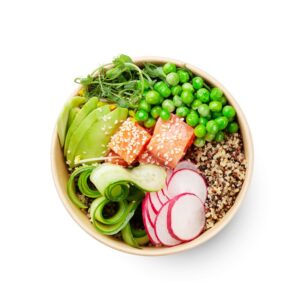 Do you think you have a healthy diet? You might be surprised to learn that most adults overestimate the quality of their diet. According to a new study from the U.S. Department of Agriculture’s Agricultural Research Service, only a small percentage of adults can accurately assess their diet. In fact, it is mostly those who evaluate their diet as poor who are the most accurate.
Do you think you have a healthy diet? You might be surprised to learn that most adults overestimate the quality of their diet. According to a new study from the U.S. Department of Agriculture’s Agricultural Research Service, only a small percentage of adults can accurately assess their diet. In fact, it is mostly those who evaluate their diet as poor who are the most accurate.
While previous studies have found that self-rated health is a strong predictor of mortality, there isn’t much research on whether self-rated diet quality is predictive of the actual quality of diet. So, researchers wanted to determine whether a single question could be used as a screening tool for nutrition studies. If it was able to, it would replace a detailed dietary questionnaire that is commonly used in nutrition research.
Advertisement
For the study, data was used from the National Health and Nutrition Examination Survey, a nationally representative survey of U.S. adults conducted every two years. All participants were required to complete 24-hour detailed dietary questionnaires and rate their diet as excellent, very good, good, fair, or poor.
Researchers used the questionnaires to score each participant’s diet quality. Foods ranked as healthier included fruits and vegetables, whole grains, healthy fats, lower-fat dairy products, seafood and plant proteins. Foods considered less healthy included refined grains and foods high in sodium, added sugars, or saturated fats.
Significant disconnects were found between the calculated scores and how participants ranked their own diet. Almost 99% overrated the healthfulness of their diet.
“It’s difficult for us to say whether U.S. adults lack an accurate understanding of the components of a healthful versus unhealthful diet or whether adults perceive the healthfulness of their diet as they wish it to be — that is, higher in quality than it actually is,” said lead author Jessica Thomson. “Until we have a better understanding of what individuals consider when assessing the healthfulness of their diet, it will be difficult to determine what knowledge and skills are necessary to improve self-assessment or perception of one’s diet quality.”
Food Facts
Advertisement
No matter the reason for the disconnect between how most U.S. adults think they are eating and how unhealthy their diet truly is, steps need to be taken to improve their diet. This study adds to mounting evidence that shows how people need to be educated on food facts and how diet can affect our general health.
To help ensure your diet is complete, 65+ Superfood Essentials is an excellent addition to a daily supplement regime. This breakthrough formula is a great way to support and promote cardiovascular and overall health. It contains Capros®, a patented and clinically studied Indian gooseberry extract that has been found to absorb free radicals and provide cascading antioxidants.
Acai berry (the powerful natural antioxidant known to support total health) and resveratrol, a premier anti-aging ingredient, are also found in this formulation that can help ensure proper nutrients and vitamins essential as you age.
